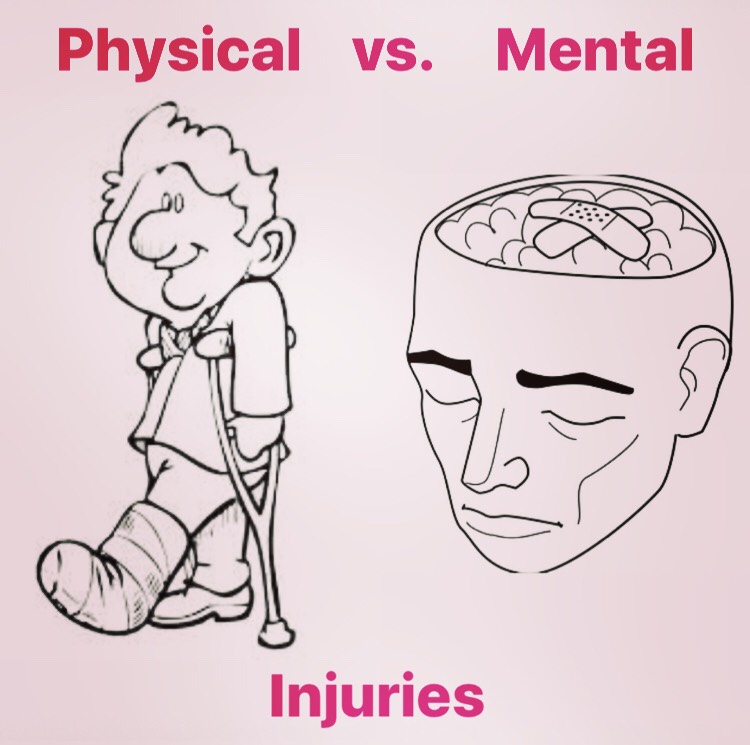This is one of the most common comparisons used when advocating for MH rights/reform/treatment.
However, what’s often used are broad examples to try to illustrate important pts. We hear things like: I take meds for my lack of serotonin, so why’s that any diff than taking insulin for diabetes? Another one: Just bc you can’t physically see my pain, doesn’t mean I don’t feel it.
These are all well-intentioned, but they don’t get at real life examples that are happening in front of us, to show the diff ways we are treating each. I’m gonna challenge myself (& others if you’re up to it), to provide concrete examples where our systems are failing us. Here are 2 that just happened:
1) A friend’s cousin had to go to the hospital in the middle of the night – the psych ward, to check himself in. His girlfriend had just come back in his life after initially leaving. This change/balancing her re-appearance sent him into a depressive spiral, where he felt the only way to get better was to check himself in. He left a msg w work on HR’s vmail to let them know. A short time later, he was notified by the office (w/o any follow-up from his original call), that he was being terminated. The reason they cited: He did not file his family medical leave paperwork in time. He lived at home, alone, was never called back, & the paperwork was only sent to that house, while he was at the hospital, w no notification.
I’m no expert in the laws in each state, but let’s compare this to what would’ve happened in most cases where an employee instead got into a major car accident & had to go to the hospital. Even leaving a vmail w HR, the employee would likely have been contacted by that dept., flowers would’ve been sent to their hospital room, & they’d have been handheld through the paperwork/process of taking time off. Bc of privacy laws, maybe word wouldn’t have spread arnd the office to send notes of encouragement to the employee in the psych ward…but nonetheless, the empathetic process would kick into greater gear for the employee in the car accident & cards/chocolates would’ve filled their room.
2) Our new Alliance member, Robin Lehner, had the best yr of his career, after finally getting help from the NHL’s substance abuse program. Now, despite being voted the 2nd best goalie in the league, & having a career yr, he was only offered a 2 yr deal by his current team, & a 1 yr deal by other teams. His current team ended up signing a different player, w lesser stats, 4 yrs older, to a 4 yr deal. Teams wouldn’t take the “risk.”
Compare that to a physical injury. Let’s say in the NBA, a player with “shaky knees” from his college days, got into the League & started off 3 mediocre yrs. He then went to have major knee surgery, & after the repairs, had the best yr of his career, w stats among the best in the league at his position. The GMs & coaches would be chomping at the bit to sign him. He’d still be considered a “risk” bc he’d be one twist of the knee away from ending his career, but still – despite the risk, he’d be offered a big multi-yr contract, for showing how well he performed after his knees were “fixed” from surgery.
I know nothing is ever apples to apples. But the 2 examples above should be eye-openers. We have a long way to go to educate society, & decision-makers specifically, how MH does/doesn’t affect most…how the risks play out relative to other more common risks they know…& even the UP-side in investing in folks w MH complications who have gotten help & can potentially perform way above expectations. Long way to go!


